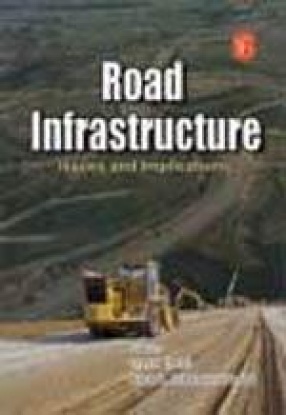This book presents a collection of views of industry experts and policy makers on the issues and challenges in roadways infrastructure development. It studies the Indian perspective as well as the perspectives of other developing and developed countries. It gives us an idea about the reforms needed to facilitate the development work and enables us to observe the emerging concerns like social and economic feasibilities, environmental issues, political shortcomings and administrative drawbacks. It stimulates a deeper probe into the emerging issues in road sector development. India has the second largest road network in the world. Despite its manifold expansion it is seriously capacity constrained. National highways constitute only 2% of the total road network but carry 40% of the total traffic. The Government has taken initiatives to improve the road infrastructure but there are many difficulties and ambiguous issues yet to be resolved. Problems of financing for building and maintaining the roads find ways in models of commercialization like "Build-Operate-Transfer" and "Maintain-Operate-Transfer". The road infrastructure is essentially a social good and the benefits from the road projects are difficult to quantify as most of the times, the benefits are intangible. The higher social rate of return and lower financial rate of return, restricts the volume of private investment in Roadways development. Road sector development programmes can be suitably aligned with poverty alleviation programmes with pro-growth, pro-poor provisions. In countries like India, Tanzania, etc, roadways development programs have been used as a strategy for poverty reduction and rural development. The issues within the economy and between two or more economies have some common grounds like trade and commerce, uplifting living standards and facilitating overall growth and development in the society. Its link with the social costs and benefits is a major issue to be taken care of. The challenges are many, from technical to social, and needs to be addressed forehand.
Road Infrastructure: Issues and Implications
In stock
Free & Quick Delivery Worldwide
reviews
Bibliographic information
Title
Road Infrastructure: Issues and Implications
Author
Edition
1st ed.
Publisher
ISBN
8131406407
Length
248p.
Subjects




There are no reviews yet.